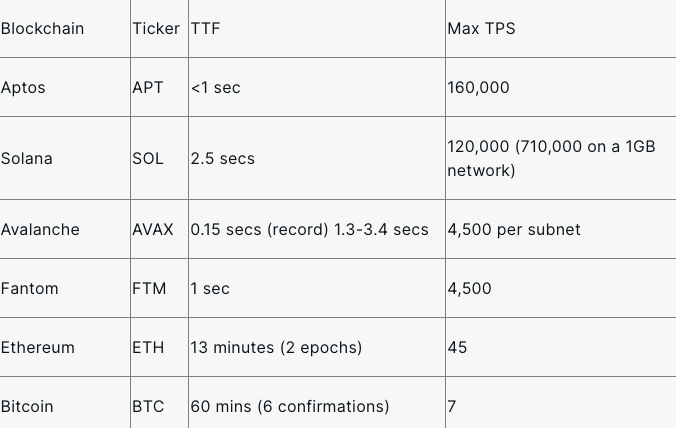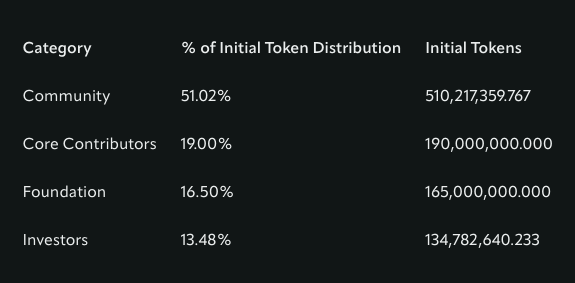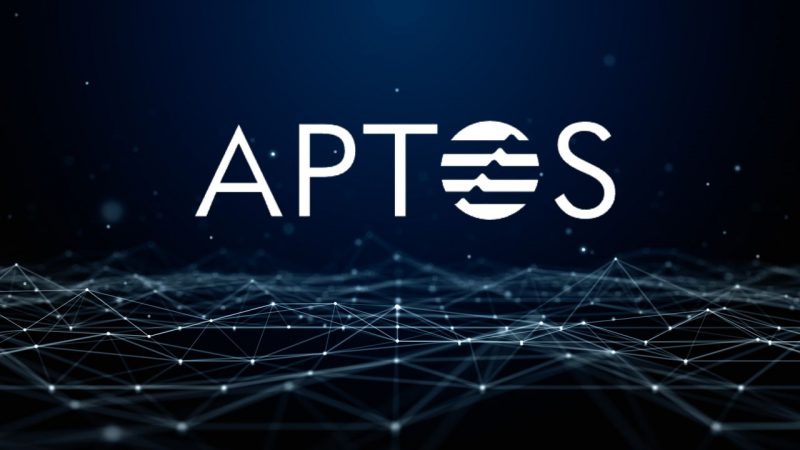Of late, there has been a lot of buzz going on around Aptos. The said project which was being worked upon for a period of 4 years, finally launched its mainnet yesterday.


In a recently released statement, Aptos said that the said launch marked “step one” of its long journey to create “universal and fair access to decentralized applications” via “a safe, scalable, and upgradeable blockchain.”
Interestingly, the blockchain uses the programming language Move that’s intended to make transactions faster and cheaper. In fact, Move also powered the network of Meta’s now-defunct project Diem. Aptos Labs, interestingly, was created by former Meta employees Mo Shaikh and Avery Ching, who was involved in the failed blockchain project.
TPS Backlash
Since its launch, the project has been receiving a lot of backlash. Take the case of the transactions per second itself, for starters. Per FTX’s Aptos Research Report, the blockchain can process upto 160,000 TPS. The same is fairly lower for other top networks like Solana, Avalanche, and Fantom. In fact, Bitcoin and Ethereum’s numbers are nowhere close to the Aptos’ numbers. Furthermore, per the research report, the said blockchain’s Total Time to Finality (TTF) is also one of the least.


Well, reality seems to narrate a completely different tale. According to official data from Aptos’ blockchain explorer, the blockchain has only been executing 4 transactions per second. In fact, several users have claimed on platforms like Twitter that their transactions have not been able to get through.


Tokenomics controversy
When the mainnet was launched yesterday, the initial total supply of APT was 1 billion tokens. Around 510 million were distributed to community members, 190 million to core developers, and the remaining to the Aptos Foundation and private investors.


Notably, The Aptos Foundation holds 410 million tokens overall, which is set to be released over the course of the next ten years. Out of that, 125 million APT is available initially to support ecosystem projects, grants, and unspecified community growth initiatives. Another 5,000,000 APT is available to support the Aptos Foundation initiatives for the Foundation category.
Per the blogpost, another 100 million tokens are held by Aptos Labs—the centralized entity that develops and maintains the blockchain. Aptos said that the tokens held by private investors and current core contributors are subject to a 4-year lock-up schedule from the mainnet launch.
Most people from the space have criticized tokenomics as a whole, with some specifically displeased with the large allocation dedicated to developers and the company itself.
Listings FUD
Top exchanges right from Binance to FTX and OKX have expressed that they will support the listing at its launch on 19 October. When their announcements regarding the same were out, there was not much clarity associated with tokenomics. As a result, community members exhibited their skepticism.
Now, with the tokenomics details out, another contention point has come up regarding perpetual contract listings. Chalking out the same, Colin Wu tweeted:





